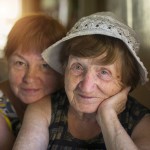
Geoff Page publishes his debut elf blog on a new systematic review of alcohol and drug use disorders in recently incarcerated men and women.
We’re publishing this blog to coincide with the #WomenAndDrugs event taking place in York today, which you can follow on Twitter and via our live podcast.
[read the full story...]







